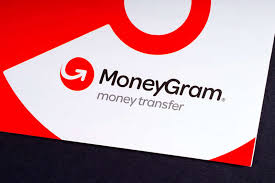MoneyGram Payment Systems Agrees to Pay OFAC $34k for Sanctions Violations

MoneyGram settled with OFAC for $34,329 for 359 sanctions programs violations. MoneyGram is a global payments service.
According to OFAC, the 359 transactions totaled $105,627 in value and were processed on behalf of approximately 40 individuals on OFAC’s Specially Designated Nationals list (SDN List).
MoneyGram has been operating under a monitor imposed in 2012 U.S. Department of Justice settlement to ensure MoneyGram’s enhancement of its compliance program. In a federal court filing, the Justice Department and MoneyGram notified the court that MoneyGram’s compliance program had been enhanced and met relevant standards. The DOJ settlement was originally reached in 2012, and it took MoneyGram nearly seven years to reach this point in remediation. MoneyGram had a sordid history of anti-money laundering violations, centering on corrupt third-party agents who defrauded hundreds of thousands of victims.
In this context, MoneyGram and OFAC resolved a long-running investigation centering on sanctions violations. The conduct centered on MoneyGram money transfer services provided to federal prison inmates as allowed by the Department of Justice’s Federal Bureau of Prisons (BOP). OFAC failed to screen inmates against the SDN List between March 2013 to April 2016. MoneyGram had the mistaken belief that the BOP program did not require MoneyGram to screen users against the SDN List.
MoneyGram suffered technology failures and human errors that allowed the lapses to continue. MoneyGram processed transactions for additional blocked persons because of screening, technology and fuzzy logic failures. Human error permitted processing of transactions under the mistaken belief that the transactions were “noncommercial personal remittances.”

OFAC explained that MoneyGram had “reason to know” based on payment details or attestations from customers that these transactions likely had a nexus to a blocked person or sanctioned jurisdiction.
MoneyGram discovered these violations as part of the remediation of its compliance program as directed by DOJ and the compliance monitor. OFAC noted that many of the problematic transactions would have been eligible for licenses. MoneyGram voluntarily disclosed the sanctions violations to OFAC.
In 2016, MoneyGram increased its compliance department by 128 employees, hired a chief compliance officer, and significantly increased its spending on its compliance program and relevant functions.
MoneyGram implemented additional improvements to its compliance program, including:
- Replacing its screening system and launching a new, enhanced screening program to monitor transactions. The new system includes more features to screen, monitor and resolve sanctions and other compliance-related alerts from transactions;
- Implemented a screening system for BOP transactions and denied services to commissary accounts that belonged to known SDN List persons. MoneyGram required the inmate’s name be included along with the inmate’s account number; and
- Provided additional training to its agent network to increase the quality of data collected.

OFAC explained that this enforcement action highlights that money services businesses that are processing transactions for individuals worldwide, including individuals potentially ordinarily resident in, or doing business in, countries subject to U.S. sanctions — like all financial service providers — should understand the sanctions risks associated with those services and should take steps necessary to mitigate those risks. In addition, this action highlights the importance of maintaining robust sanctions screening software and processes, especially for U.S. companies that operate globally.















